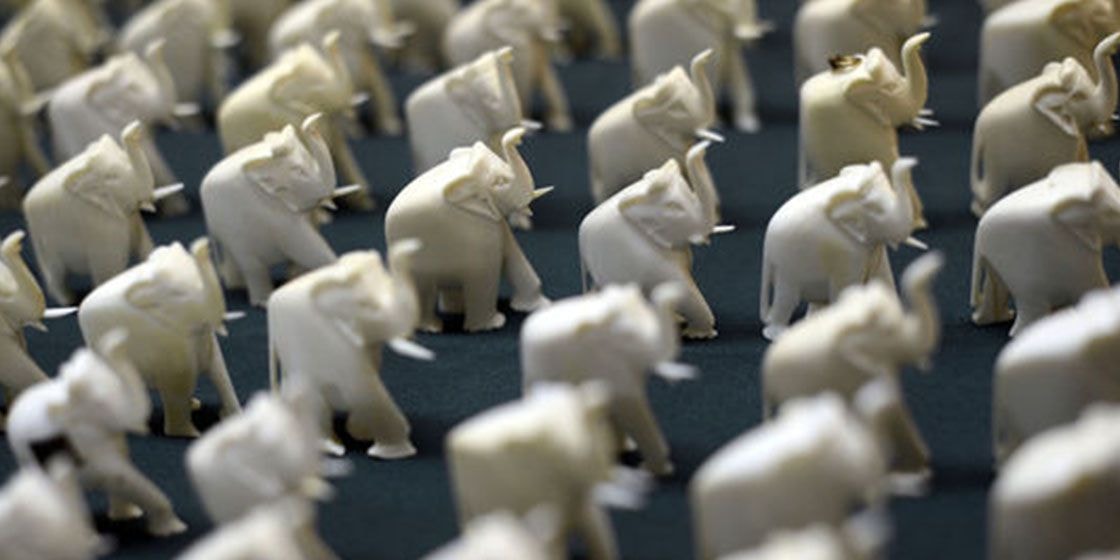China bans imports of carved ivory for 1 year
(Baonghean) - In response to strong criticism of the "loss of control" of ivory trade in China, the Beijing government recently issued a one-year ban on the import of carved ivory to appease international public opinion.
Despite being a signatory to the Convention on International Trade in Endangered Species of Wild Fauna and Flora (CITES), China remains the world’s largest consumer of smuggled ivory. At the same time, the sale of carved ivory is still considered legal in the country. In fact, ivory carving is an ancient art form in China. Intricate ivory carvings are highly prized by collectors and are therefore a valuable investment for traders.
 |
| Illegal ivory carvings on display at a conference in New York. Photo: Reuters |
However, the increasing demand for ivory carvings has led to the killing of tens of thousands of elephants in Africa every year. In December 2014, a report by the NGO Save the Elephant and the Aspinall Foundation estimated that more than 100,000 elephants were killed between 2010 and 2012. The organizations asserted that the main reason for this situation was the strong demand for ivory in China. Accordingly, the price of “raw” ivory in China increased from 550 euros/1 kg in 2010 to 1,540 euros in 2014.
Responding to the ban imposed by China, Mr. Douglas-Hamilton – founder of Save the Elephants – was quite optimistic about this action. According to Mr. Douglas, the ban is “an important step forward in terms of direction and reflects the growing awareness in China about its role in ivory consumption.” Contrary to Mr. Douglas’s optimistic attitude, Sammi Li – spokesperson for the Wildlife Trade Monitoring Network – is less confident in China’s ban. Mr. Sammi Li said that if the ban is “an acknowledgment of China’s role in ivory trafficking,” then the decision is “more symbolic than effective.”
According to a Chinese newspaper, between 800 and 900 cases of ivory smuggling are discovered in China each year. Beijing has also closed at least 10 illegal ivory processing factories and imprisoned hundreds of smugglers. However, NGOs say these figures are just the tip of the iceberg. In May 2013, there were 37 companies specializing in carving ivory and 145 businesses trading in this type of product. For that reason, it is not surprising that many NGOs do not have faith in China's recent ban.
Chu Thanh
(According to LeMonde)






